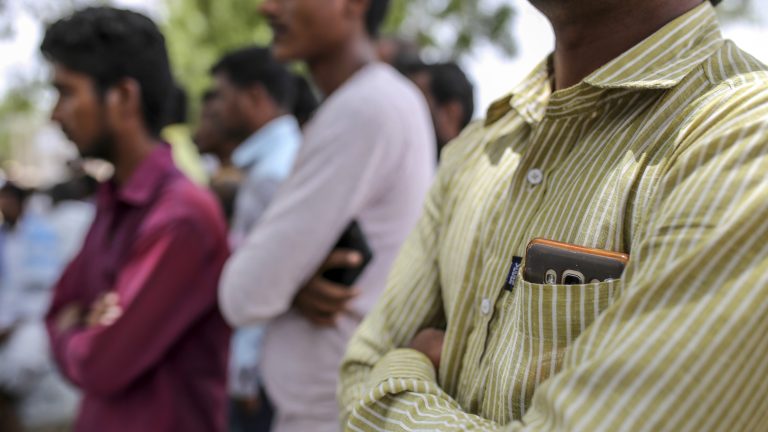Alt News’ donors are rightfully alarmed about payment data being weaponized, but their outrage might be misplaced.
By NILESH CHRISTOPHER
Nilesh Christopher is a Bengaluru-based reporter at Rest of World.
12 JULY 2022

Dhiraj Singh/Bloomberg/Getty Images
Indian payments firm Razorpay is under fire for seemingly breaching customer privacy. Some have gone on to call the company a “sell out” for sharing users’ payment data with authorities without their consent. But is faulting Razorpay for complying with a legal request fair?
On June 19, Mohammed Zubair, co-founder of fact-checking outlet Alt News, was arrested for hurting religious sentiments over a tweet he posted in 2018. Investigating authorities, through legal diktats, have now gained access to payment data of donors supporting Alt News from payments processor Razorpay. (Police are now probing Alt News for accepting foreign donations. Alt News has denied the charge.)
The data sharing has had a chilling effect. Civil society organization Internet Freedom Foundation, which uses Razorpay for donations, is exploring “additional payment platforms to offer choice and comfort to donors.” Many donors are worried that they might now become targets on account of their contributions.
This has created a new faultline in the discourse around weaponizing payment data by a state that has gained notoriety for cracking down on critics of Prime Minister Narendra Modi.
Faulting Razorpay for complying with a legal request is misguided. “I think Razorpay played it by the book,” said Dharmendra Chatur, partner at the law firm Poovayya & Co. “They sort of did what any reasonable person would do in this situation.”
Under Section 91 of India’s Criminal Procedure Code, police authorities have the power to seek information or documents on the apprehension that a crime has been committed during the course of an inquiry, inspection, or trial. “You either challenge it or you comply. There’s no other option available [for Razorpay]. And who would want to just unnecessarily initiate litigation?” Chatur said.
Razorpay in an email statement to me said, “We didn’t share donor-specific PII [personally identifiable information] like bank account, PAN [permanent account number], address, zip code… Only a small portion of the donor data was shared to assist in an ongoing investigation, not all of it. We also defended the right of the business [Alt News] to continue to accept payments till the investigation is complete, and once we got that clarity, we re-enabled payments for them.”
With regards to breaching user privacy, Chatur said that when users “accept” any digital service’s terms and conditions, it’s common to see companies creating exceptions to maintain user privacy and confidentiality — especially when asked by a law enforcement agency or a court to disclose information.
Indian payments firm Razorpay is under fire for seemingly breaching customer privacy. Some have gone on to call the company a “sell out” for sharing users’ payment data with authorities without their consent. But is faulting Razorpay for complying with a legal request fair?
On June 19, Mohammed Zubair, co-founder of fact-checking outlet Alt News, was arrested for hurting religious sentiments over a tweet he posted in 2018. Investigating authorities, through legal diktats, have now gained access to payment data of donors supporting Alt News from payments processor Razorpay. (Police are now probing Alt News for accepting foreign donations. Alt News has denied the charge.)
The data sharing has had a chilling effect. Civil society organization Internet Freedom Foundation, which uses Razorpay for donations, is exploring “additional payment platforms to offer choice and comfort to donors.” Many donors are worried that they might now become targets on account of their contributions.
This has created a new faultline in the discourse around weaponizing payment data by a state that has gained notoriety for cracking down on critics of Prime Minister Narendra Modi.
Faulting Razorpay for complying with a legal request is misguided. “I think Razorpay played it by the book,” said Dharmendra Chatur, partner at the law firm Poovayya & Co. “They sort of did what any reasonable person would do in this situation.”
Under Section 91 of India’s Criminal Procedure Code, police authorities have the power to seek information or documents on the apprehension that a crime has been committed during the course of an inquiry, inspection, or trial. “You either challenge it or you comply. There’s no other option available [for Razorpay]. And who would want to just unnecessarily initiate litigation?” Chatur said.
Razorpay in an email statement to me said, “We didn’t share donor-specific PII [personally identifiable information] like bank account, PAN [permanent account number], address, zip code… Only a small portion of the donor data was shared to assist in an ongoing investigation, not all of it. We also defended the right of the business [Alt News] to continue to accept payments till the investigation is complete, and once we got that clarity, we re-enabled payments for them.”
With regards to breaching user privacy, Chatur said that when users “accept” any digital service’s terms and conditions, it’s common to see companies creating exceptions to maintain user privacy and confidentiality — especially when asked by a law enforcement agency or a court to disclose information.
In this backdrop, the reform that users should be demanding is a rights-respecting data privacy policy that will help challenge overreach by the state. Not the prosecution of a payments firm playing by the book.
No comments:
Post a Comment